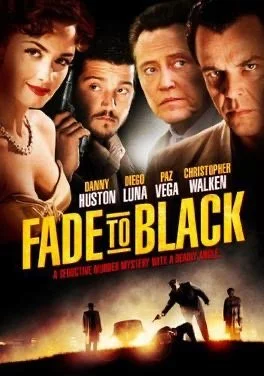Director: Oliver Parker
Cast: Danny Huston, Diego Luna, Paz Vega, Christopher Walken
Have I Seen it Before: Never. I think film land would forgive me for blanching at imaginary tales featuring a fictional Orson Welles (Huston). One does not want to pollute the reservoir.
Did I Like It: I’m going to be the wrong audience for this film, right? It’s kind of like a magician trying to do tricks for another magician. This actually does happen in this film, and the notion that Welles would be flummoxed by anyone attempting slight of hand in front of him was something I wouldn’t have done… because it’s ridiculous. This goes double for the moment where he discusses “self-esteem” with another character. I’m not entirely sure anyone ever used the term “self-esteem” before 1975, and I have a real problem with Welles being concerned with it at all in 1947.
On spec, Danny Huston feels like the wrong casting for Orson, and I’m struck by how badly cast he is as the film unfurls. Can anyone—let’s put me aside for a moment—not look at Mr. Huston and think he not only doesn’t look or sound a bit like Welles, but instead is a dead ringer for his father—and Welles contemporary and leading man in The Other Side of the Wind (2018)— John Huston. There are plenty of actors who have portrayed Welles who didn’t quite fit the bill of the man, but none of them are a dead-ringer for another iconoclastic filmmaker of the time.
Also, the notion that he started to get fat only because Rita Hayworth left him? It’s the kind of pat thing that makes an idea like Rosebud the last thing anyone discusses when talking about Citizen Kane (1941).
So, yes. I have some notes.
Let’s try to look at the film objectively, as if I were not me, and the subject matter of this film was any other subject matter. The film is shot with all of the bland panache of a made-for-cable-movie which would be forgotten virtually the instant the next block of programming takes over. The murder mystery story is utterly pedestrian, and I don’t care a bit when the murderer is revealed. Sequences that place Welles in the middle of post-war Italy have a certain verisimilitude, and I think that may be the most damnable faint praise I can offer the film: it works best when Welles and its genre trappings are incidental to the proceedings.

